Years ago, I kept an octopus in a tank for a while. I was able to see, up close, its complex behaviors, problem-solving abilities. Its behavior suggested that it could distinguish me (“The-Guy-Who-Brings-Me-Dinner”) from other people
(“Other-Folks”). Ever since that time, I’ve been captivated by octopi, and I’m definitely not alone. From their prodigious ability to camouflage themselves to the uncanny prediction skills of Paul the Octopus during the 2010 FIFA World Cup, these cephalopods never fail to astound. But what lies beneath their extraordinary capabilities? Are octopi self-aware, and what could have driven such complex capabilities to evolve in creatures with such short lifespans? This thinking is part of work I’m doing, as I gather information for the exhibition we’re developing at Linda Hall Library: Life Beyond Earth: Aliens, Exoplanets & UFOs, due to open mid-October.
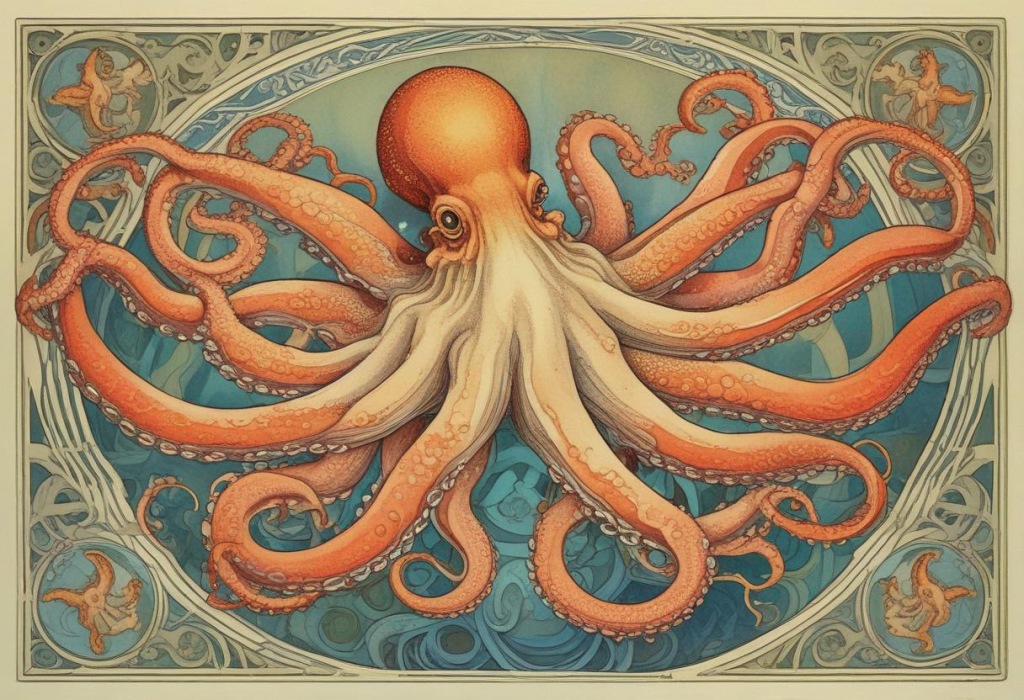
Science Behind the Mystery
In 2018, Edward Steele, a researcher in Western Australia, joined 32 of his closest colleagues, published a paper in Progress in Biophysics and Molecular Biology entitled “Cause of Cambrian Explosion – Terrestrial or Cosmic?” It provides a cosmic perspective on the evolution of life that introduces the idea that certain key evolutionary milestones may have been driven by extraterrestrial influences. Specifically, they highlight the evolution of intelligent complexity in cephalopods, particularly the octopus. The octopus genome is strikingly complex, boasting around 33,000 protein-coding gene (we poor humans only have 20,000 to 25,000). This genetic makeup supports their incredible neurological capabilities, including advanced problem-solving skills and even the potential for emotional experiences.
The study suggests that the emergence of such complexity is linked to the broader theory of panspermia, in which life (or its precursors) is transported across the cosmos via comets and meteorites. This hypothesis posits that viruses and other genetic material, potentially delivered to Earth through these cosmic events, could have contributed to significant evolutionary leaps, including those seen in cephalopods. Back in the oceans of the Cambrian Period, 541 to 485 Mya, some relatively unremarkable squid were swimming around munching on whatever and were ‘inoculated’ by extraterrestrial life forms that catalyzed unprecedented speed and complexity of evolutionary change. For instance, octopi have essentially nine brains – aside from the one in their head, each arm also has a brain-like structure that can process information independently. This is something not found in squids or other cephalopods. Also, the sophisticated chromatophore system enabling cephalopods to change color and texture rapidly is another adaptation that evolved over just tens of millions of years, compared to the rest of the 300-mya evolution of the group.
The concept of panspermia provides a fascinating lens through which to view the evolution of life on Earth. It challenges the traditional view that life evolved solely through terrestrial mechanisms and suggests a more interconnected, cosmic perspective. If viruses and other genetic materials from space have indeed influenced the development of life on Earth, it opens up myriad possibilities for understanding the origins of complex traits, such as intelligence, in creatures like the octopus, and suggests we’re less likely to be alone in the Universe than we thought.
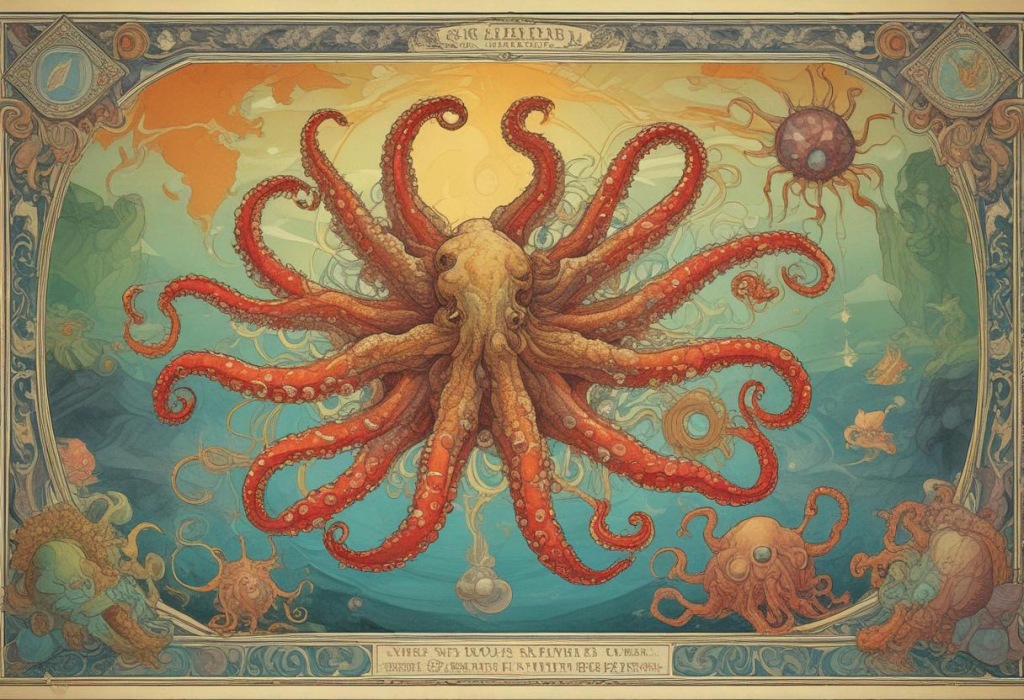
And yet…
So it definitely sounds reasonable. I want it to be true. However, the perspective of Steele and his colleagues has been met with some skepticism from others in the scientific community. Critics argue that the panspermia hypothesis, while intriguing, lacks direct empirical evidence and instead shifts the problem of life’s origins elsewhere in the cosmos without providing a concrete explanation. (Although this alone doesn’t make it wrong.) Traditional evolutionary biologists maintain that the octopus’s intelligence can be explained through natural selection and terrestrial evolutionary processes. Those who ascribe to the principle of Ockham’s razor (the idea, generally, that the simplest explanation is the most likely the true one) would suggest that a series of small steps (even relatively rapidly over a small number of millions of years) is sufficient to bring about the octopus’s remarkable genetic trajectory. Although most thinking in the scientific community currently rests on the idea that the octopus’s remarkable intellect evolved through natural, terrestrial mechanisms, there’s no way – without a time machine – to know for sure.
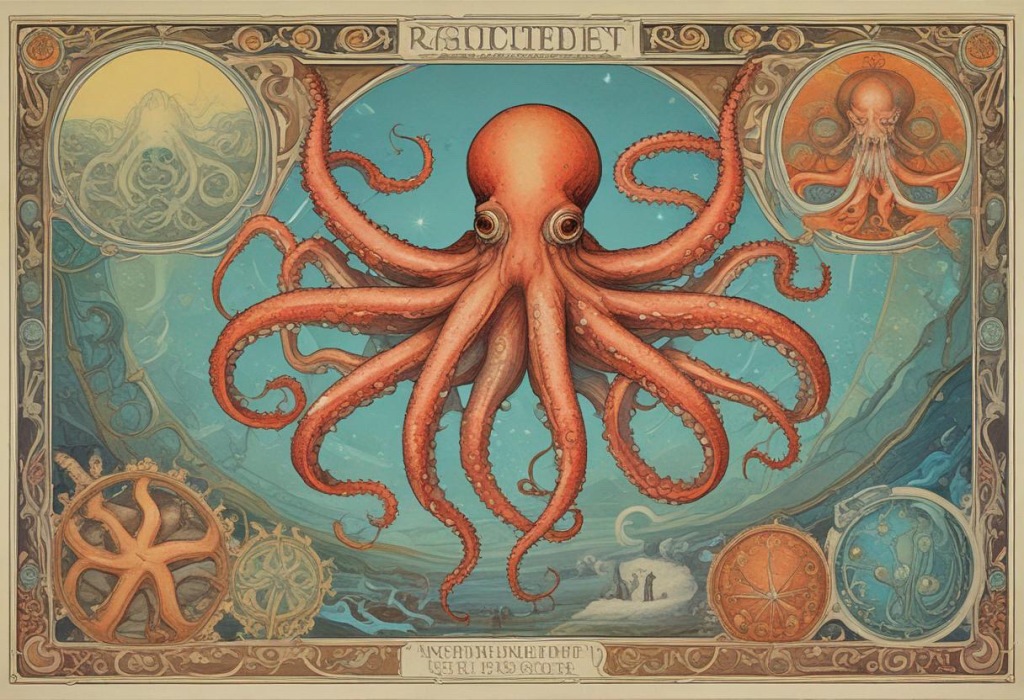
Are Octopi Sentient?
The question of animal sentience is a profound one, about which I’ve written before. Sentience refers to the capacity to have subjective experiences and feelings and anybody who’s owned a dog or a cat, or even a parrot, is quite likely comfortable with the notion that animals know their owners and themselves. A complete about-face from the mechanistic 17th century view of Descartes, it’s now a commonly held believe that animals, at least vertebrates, have motivations when interacting with you (Did my dog just lie about eating the pizza off the table?). But invertebrates? That strains belief. Still, observations of octopus behavior – even mine, I have to admit – suggest a level of consciousness that might qualify as sentient. They exhibit signs of play, complex problem-solving, and their recognition of individual humans indicates a form of memory and learning that goes beyond basic instinctual behavior. Additionally, their use of tools, such as coconut shells for shelter, indicates forward-thinking and planning, hallmarks of higher cognitive processes. The ability to adapt rapidly to new and complex environments suggests a level of mental processing that is unusual in the animal kingdom, perhaps akin to dolphins, elephants or crows.
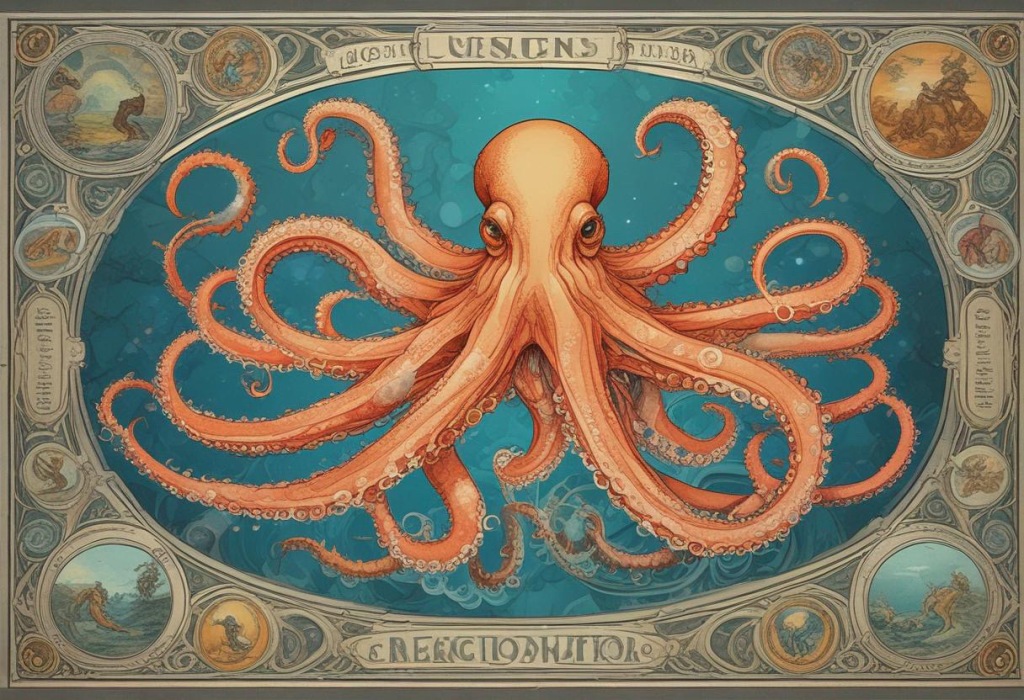
Why Intelligence in Short-Lived Creatures?
One thing that sets them apart from intelligent animals, however, is their remarkably short lifespan. Most octopi live only one to two years, although the Giant Pacific Octopus Enteroctopus dofleini can hang on four or five years, and up to seven in captivity (compared to up to 50 for the bottlenose dolphin). Why would octopi need to develop such sophisticated intelligence (which in higher vertebrates facilitates learning), when they’re not around long enough to capitalize on the benefits of their acquired experience? The answer might lie in their solitary nature and the demanding environments they inhabit. In his 2016 book Other Minds: The Octopus, the Sea, and the Deep Origins of Consciousness, Peter Godfrey-Smith argues (in contrast to Steele’s paper) that the octopus lineage represents a unique branch of cognitive evolution, with decentralized intelligence that profoundly different from vertebrate brains. It’s intricately tied to their ocean environment, in which octopi must navigate complex underwater landscapes, evade predators, and manipulate objects with independent and sophisticated problem-solving abilities and, potentially important, without the support of a social structure. Although plenty of other marine species don’t do this, it’s proven extremely successful for octopi, which are widespread across the world’s oceans, from coral reefs and pelagic waters to the seabed and intertidal zones, in almost all oceanic regions, from temperate to tropical waters to the Arctic.
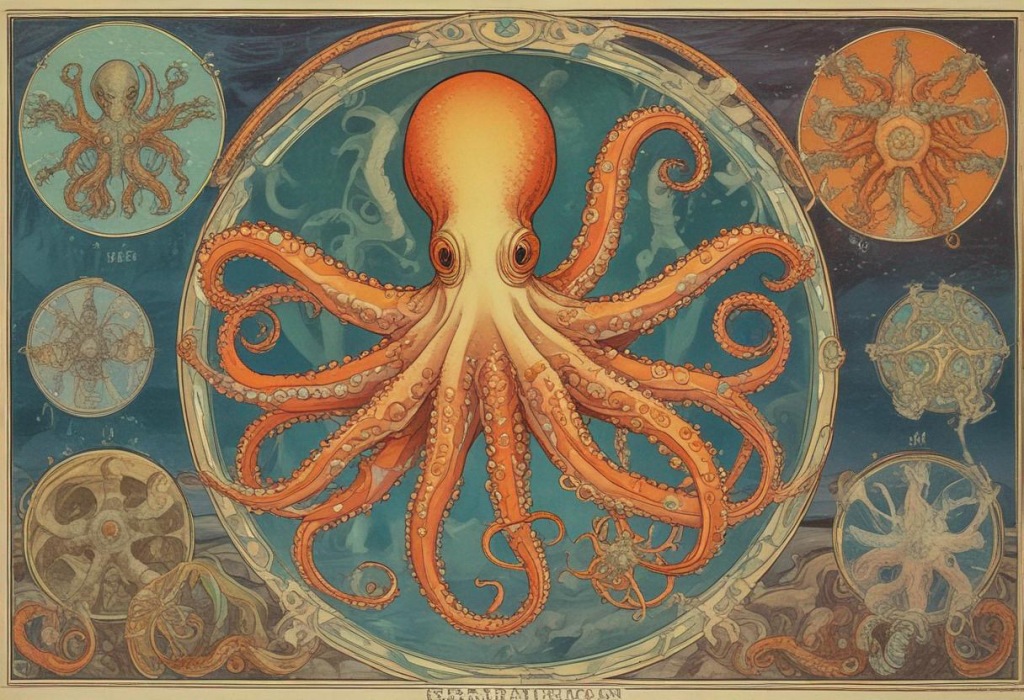
Our Perceptions, and Theirs
This notion of octopi as intelligent and almost mystical creatures has permeated popular culture. One of the most beautiful examples is the documentary My Octopus Teacher (2020), which tells the story of a remarkable bond between filmmaker Craig Foster and a wild octopus he encounters in a South African kelp forest. The film captures the species’ intelligence, curiosity, and ability to form a connection with a human, reinforcing the idea that these creatures possess a level of consciousness that’s at once profound and touching.
Another recent addition to the octopus canon is James Cameron’s Secrets of the Octopus (2024). In this documentary, Cameron explores the enigmatic lives of octopi, delving into their extraordinary abilities and uncovering new scientific insights about their behavior and intelligence. The film highlights their problem-solving skills, sophisticated camouflage techniques, and complex social interactions, painting a vivid picture of these cephalopods as highly intelligent beings.
Octopi have been depicted in various forms of media, always with a sense of otherness about them that makes great theater. From the fearsome Kraken from folklore and Pirates of the Caribbean: Dead Man’s Chest” (2006), to the Ood, from Doctor Who’s (2006) episode “The Impossible Planet,” Admiral Ackbar from Star Wars (It’s a trap!) and “Mikey” from the original (1997) “Men in Black,” there’s a thread of deep-seated curiosity about their capabilities and the potential for a form of consciousness at once alien and familiar.
Regardless of their origins, though, there’s no denying that the intellect of octopi is something out of the ordinary, especially for an invertebrate. Their advanced problem-solving skills, ability to navigate complex environments, and even display of emotions highlight an extraordinary level of cognitive sophistication that continues to challenge our understanding of intelligence in the animal kingdom.
While the full extent of octopus intelligence and sentience remains a topic of scientific exploration and debate, there’s no denying that these creatures hold a special place in both the natural world and our cultural imagination. Whether their abilities are purely a product of Earth’s evolutionary pressures or influenced by cosmic factors, the octopus remains a fascinating reminder of the mysteries of life and the universe.
As we continue to study and learn from these remarkable creatures, we may uncover deeper truths about the nature of intelligence, consciousness, and the interconnectedness of life across the cosmos. The octopus, with its blend of terrestrial and potentially cosmic influences, serves as a symbol of the boundless possibilities that life can offer, inspiring us to look beyond our immediate surroundings and consider the broader tapestry of existence.
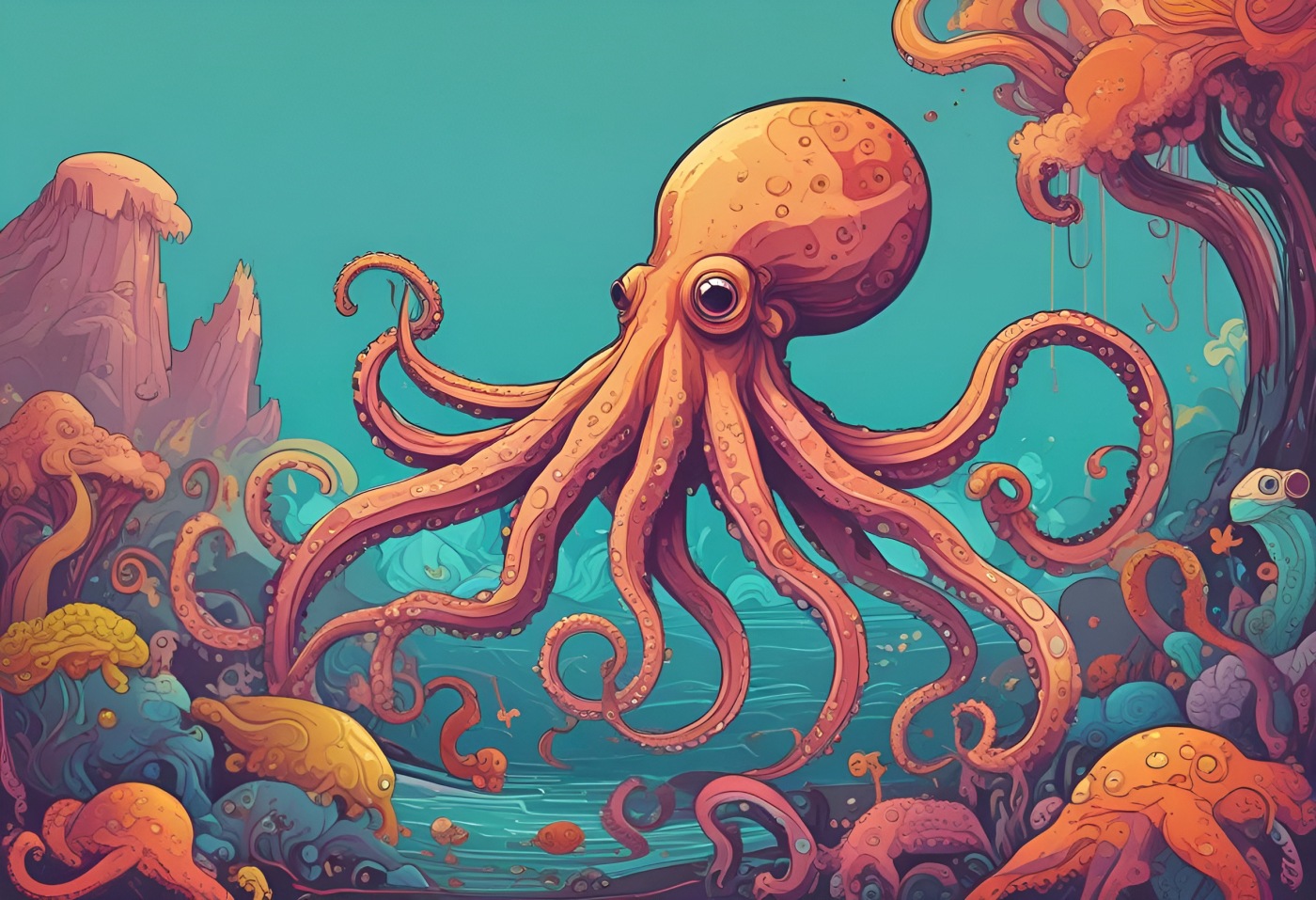
Leave a comment